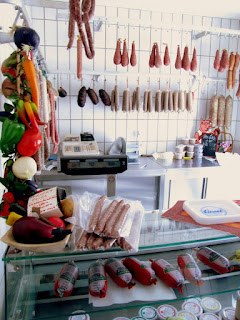 |
| © MythicMeats.com |
A rigorously holistic approach to understanding the qualities of meat has profound impacts on our understanding of this most central of foodstuffs. Real holism requires more than just multiplicity in thinking (though the 12 dimensions of meat quality are certainly foundational to the theory). Holism, here, also refers to examining the interconnections between quality dimensions, and exploring all such interconnected attributes across multiple scales (from the cow to the globe).
At first glance, the approach is nothing new. Proponents of veganism, alternative agriculture, and conventional agriculture, all frequently discuss the issues in such terms. It is precisely because of this widespread, informal adoption of holistic arguments - that an ethical imperative emerges to better understand the framework.
 |
| How we measure and talk about meat quality has
profound impact on how we produce meat
© MythicMeats.com
|
An evolutionary perspective can help us understand that, rather than searching for global panaceas, it is perhaps in our better interest to understand the diversity in ethical positions held globally, and identify the range of holistic meat (and non-meat) qualities that science best indicates are in alignment with a range of commonly held values.
When I reference a vision for building greater consensus on the ethics of meat and grazing - I am far from implying that more and more people should move toward any particular ideology. Instead it is that we can do vastly better at understanding and appreciating the diversity that exists. Building a common ground in this manner, appears so critical if we are to develop the levels of cooperation we need to address the coming exponential challenges for food production of all kinds.
 |
| © MythicMeats.com |
There is no such thing as "perfect meat" (or non-meat) - we will always be dealing with trade-offs among the quality dimensions (e.g. price vs. taste). Where such holistic qualities are so intrinsicly interconnected, it is the optimisation of all such quality dimensions, for all humans that clearly becomes the only path to a sustainable, ethical future.

No comments:
Post a Comment